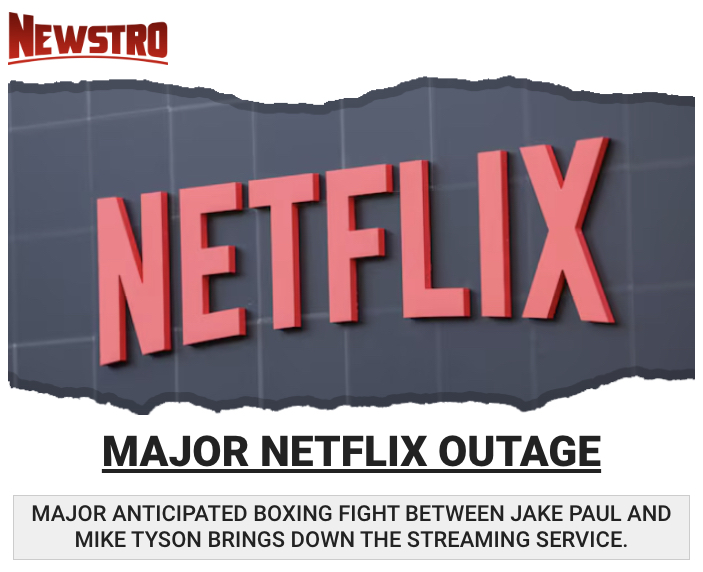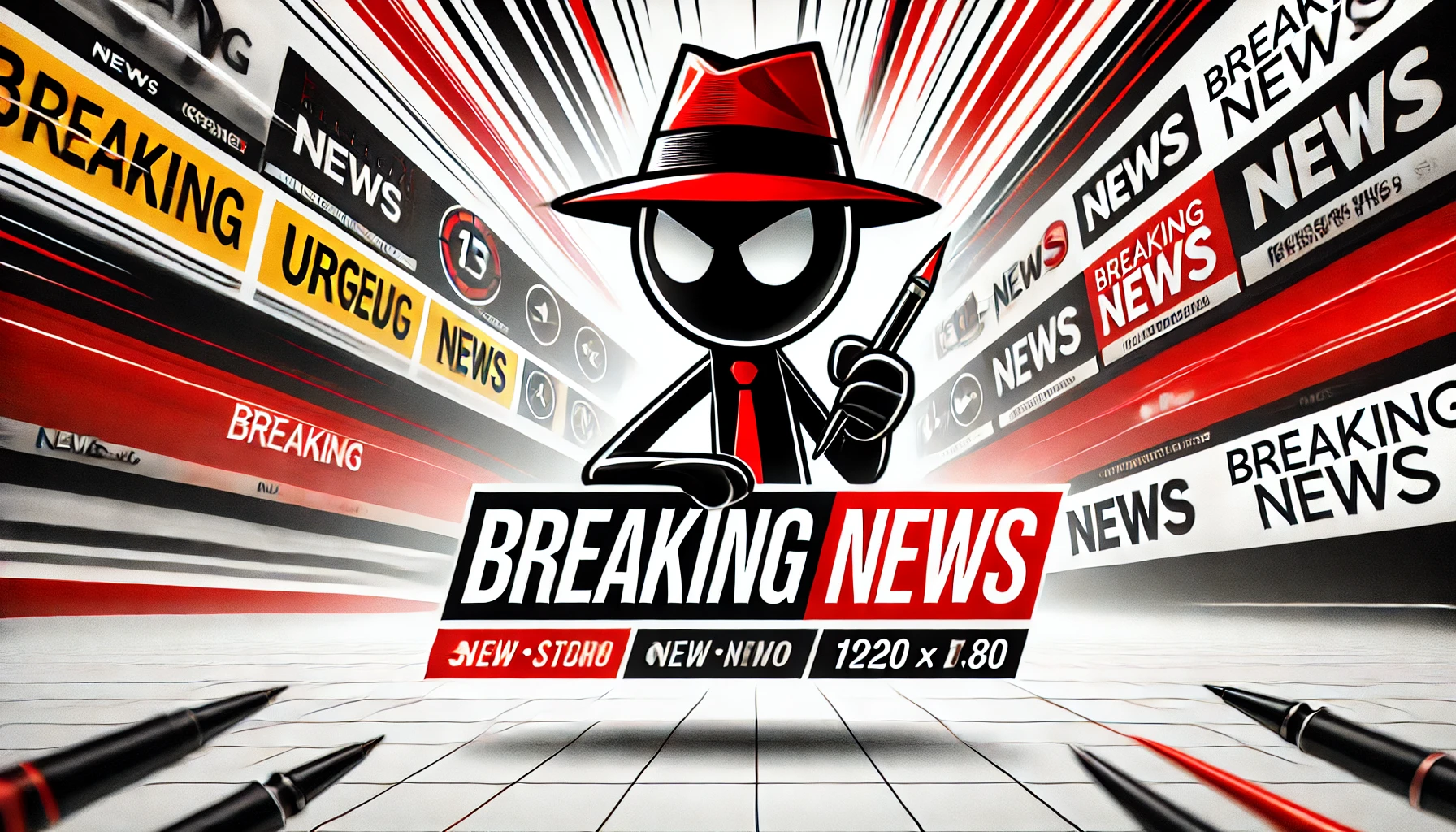North Korean Soldiers Entering Ukraine Conflict Could Ignite Global War
The involvement of North Korean soldiers in the Ukraine war could escalate the conflict to a global scale. This development poses serious implications for the United States, North Korea, and South Korea, risking a resurgence of the Korean War. Read the full analysis on North Korean soldiers fighting in Ukraine. Source: The National Interest.
Newstro Quick Facts
- North Korea has signed a mutual defense pact with Russia, signaling a shift away from its historic pursuit of engagement with the West and solidifying its stance against the United States and its allies.
- The potential participation of North Korean troops in the Ukraine conflict is seen as a dangerous escalation, potentially transforming the war into a global confrontation and reopening unresolved tensions from the Korean War.
- For decades, diplomacy and engagement have been the only avenues for de-escalating conflicts involving North Korea, but recent developments suggest a turn toward militarized posturing rather than peace efforts.
Trump Calls on Supporters to Help Democrats in “Financial Crisis” Post-Election
President-elect Donald Trump surprised many by encouraging his supporters to aid the Democratic Party’s financial struggles following their recent election defeat. Amid reports of massive campaign debts, Trump cited a need for unity and extended his unexpected support to assist his former rivals during this challenging period, noting the importance of earned media as a cost-effective campaign tool. Source: Business Standard
Newstro Quick Facts
- Trump calls for unity by encouraging Republicans to assist Democrats in their post-election “financial crisis,” emphasizing solidarity and support for the sake of national unity.
- Harris campaign debt amounts to approximately $20 million, despite record-breaking fundraising that initially brought in over $1 billion, according to campaign sources and reports from Politico.
- Trump praises earned media as a major asset in his campaign, noting it’s a budget-friendly strategy compared to paid advertisements, especially as Democrats face post-election financial strain.
Trump Praises Chinese President Xi for His Authoritarian Control Over Citizens in New Interview
In a recent interview with Joe Rogan, former President Donald Trump lauded Chinese President Xi Jinping, referring to him as a “brilliant” leader who maintains strict control over 1.4 billion citizens. This is not the first time Trump has spoken highly of Xi’s authority. Read more from the original article on Yahoo News.
Newstro Quick Facts
- During the interview, Trump reiterated his admiration for world leaders with strong authoritative control, calling Xi a “brilliant guy” for his “iron fist” rule over China’s 1.4 billion people.
- Trump remarked that U.S. “evil people” are a greater threat than external adversaries, continuing his stance on the “enemy from within” and expressing frustration with the American press.
- The former president hinted at his longstanding rapport with other authoritarian figures, including North Korea’s Kim Jong Un, referring to his leadership style as effective and significant.
Biden Expresses Concern Trump May Not Concede Election Peacefully
President Joe Biden voiced serious concerns on Friday about the integrity of the upcoming U.S. presidential election, suggesting the possibility that former President Donald Trump and his running mate, Senator JD Vance, may not accept the election results. Biden underscored his confidence in a “free and fair” process but questioned the likelihood of a peaceful outcome due to Trump’s past behavior. The complete article is available at AOL News.
Newstro Quick Facts
- Election Integrity Concerns: Biden emphasized his belief that the election process would be both free and fair, yet expressed fears regarding a peaceful transition, citing Trump’s history of contesting unfavorable results.
- Vice Presidential Debate Highlights: Senator JD Vance avoided affirming his commitment to accepting election results, instead focusing on alleged issues with the 2020 election, fueling concerns about his stance.
- Legal Battles Surrounding Trump: U.S. prosecutors recently argued that Trump had acted beyond his presidential duties in attempting to reverse the 2020 election results, adding significant weight to ongoing legal scrutiny.
Trump Refers to CNN’s Anderson Cooper by a Woman’s Name in Recent Rallies
Former President Donald Trump has recently referred to CNN anchor Anderson Cooper using a woman’s first name, “Allison,” multiple times during his Michigan rallies. The comment, emphasizing a hypermasculine appeal, was repeated on Trump’s social media site and during a rally with further mockery of Cooper’s identity. Source: ABC News.
Newstro Quick Facts
- Trump’s Comments on Cooper: At his Michigan rallies, Trump referred to Anderson Cooper as “Allison,” a move that critiques Cooper’s role as an openly gay journalist, casting stereotypes against gay men.
- Repetition of Comments: Trump repeated the name at multiple events, suggesting a campaign tactic to align with male voters by belittling Cooper, a prominent media figure known for his CNN role.
- Trump’s Audience Engagement: Trump used the nickname in the final stages of his campaign, rallying a hypermasculine tone meant to resonate with his supporters while simultaneously mocking the media.
‘Home Improvement’ Actor Zachery Bryan Arrested for DUI
Zachery Ty Bryan, former star of the popular 90s sitcom “Home Improvement,” was arrested for driving under the influence (DUI) in Custer County, Oklahoma. According to police, this is Bryan’s second DUI-related felony offense, compounded by a charge of driving without a valid driver’s license. Details of Bryan’s arrest highlight past incidents in California and Oregon. Source: DNyuz.
Newstro Quick Facts
- Oklahoma authorities confirmed that Bryan was booked on suspicion of DUI and driving without a valid driver’s license; this is Bryan’s second felony DUI-related charge.
- Earlier this year, Bryan faced DUI-related charges in California after a police stop in La Quinta; he was released on bail shortly after.
- Past charges against Bryan include domestic assault allegations in 2023 and a guilty plea for a 2020 domestic incident, where he faced accusations of assault against his girlfriend.
Progressives Voice Discontent Over Kamala Harris Campaigning with Liz Cheney
CNN host Jake Tapper recently questioned Senator Bernie Sanders on why Vice President Kamala Harris is focusing campaign efforts alongside Republican Liz Cheney instead of progressive figures like Sanders himself. The decision has sparked concern among some Democrats who fear this strategy could alienate the party’s progressive base. Source: Fox News.
Newstro Quick Facts
- Sen. Bernie Sanders expressed concerns that Vice President Harris’s collaboration with Liz Cheney may not resonate with the working-class voters who form a significant portion of the Democratic base.
- Progressive groups warn that Harris’s focus on bipartisan appearances with Cheney risks diminishing voter enthusiasm, with some progressives considering alternatives.
- Harris’s campaign has reportedly prioritized issues like grocery prices and economic messaging in ads, despite events that emphasize unity with Cheney over progressive outreach.
Donald Trump Overtakes Kamala Harris in New National Polls
Harris and Trump Neck-and-Neck
Donald Trump has managed to erase Kamala Harris‘ lead, pushing the presidential race into a dead heat, as revealed in a recent national poll published Saturday. With just ten days until the 2024 election, both candidates are neck and neck, with battleground states potentially determining the final outcome. This report, sourced from Newsweek, captures the latest voter sentiment.
Newstro Quick Facts
- Trump gains support: Former President Donald Trump has seen a boost, overtaking Harris in four recent major national polls, indicating a shift in voter preferences as Election Day approaches.
- Polls show a deadlock: Emerson College Polling finds both candidates locked at 49%, with only a small percentage of voters undecided or opting for third-party candidates.
- Key demographics favor Trump: Male voters increasingly support Trump by a 13-point margin, while female voters lean towards Harris, showcasing clear demographic divides within the electorate.
FBI Reveals Russian Actors Behind Fake Video Targeting Trump Ballots in Pennsylvania
U.S. officials confirmed Russian actors created a video showing fake election workers destroying ballots for Donald Trump in Pennsylvania. The FBI debunked the video within hours, highlighting ongoing efforts by Moscow to undermine U.S. election integrity. Officials emphasized the need for vigilance as misinformation tactics evolve. Source: Associated Press.
Newstro Quick Facts
- Russian Influence: The FBI reports the video as part of a broader effort by Russian operatives to create doubt in the U.S. electoral process, aiming to deepen divisions among Americans.
- Debunked Quickly: Pennsylvania election officials identified the video as fake, pointing out the inauthentic materials used and the violations of state election laws displayed in the footage.
- Strategic Timing: Experts suggest the timing of the video’s release was strategic, aimed at creating distrust among voters just before the conclusion of voting in this critical election period.
BREAKING NEWS: Israel Launches Retaliatory Attack on Iran
Israel has initiated a retaliatory strike against Iran following weeks of escalating hostilities. Multiple explosions have been reported near Tehran, as Israeli forces target Iranian military installations. This move comes in response to Iran’s missile attacks earlier this month. Sources confirm the involvement of U.S. officials in monitoring these developments. (Source: Washington Examiner)
BREAKING NEWS: Israeli Airstrike in Lebanon Kills Three Journalists
An Israeli airstrike targeted a journalist compound in Hasbaya, southeast Lebanon, killing three media personnel. The journalists were working for Al-Mayadeen and Al-Manar TV. The attack, conducted early Friday morning, has prompted international outcry. Lebanon’s National News Agency confirmed the casualties. (Source: AP News)

What We Know
- The airstrike targeted a compound used by journalists in Hasbaya, a region previously spared from major conflict. The attack occurred at approximately 3:00 a.m., leaving several buildings destroyed and vehicles marked “PRESS” buried under debris.
- Among the dead are journalists from Al-Mayadeen and Al-Manar TV, both known for their affiliation with Hezbollah. The strike occurred without prior warning, leading to criticism from Lebanese officials and international organizations.
- Lebanese Information Minister Ziad Makary condemned the attack, labeling it as a deliberate targeting of journalists. The Israeli military stated they are investigating the incident, but similar airstrikes have also been reported in southern Lebanon this week.
Read More Breaking News at Newstro.com
Iran Braces for Israeli Retaliatory Strikes Amid Tensions
Following Iran’s missile attacks on Israel, which breached its air defense systems earlier this month, Israeli Prime Minister Benjamin Netanyahu informed President Biden of Israel’s plans to strike military targets rather than nuclear sites. Biden advised against attacking oil infrastructure due to potential economic fallout. (Source: The Washington Post)
Newstro Quick Facts
- On October 1, Iran launched over 200 ballistic missiles targeting Israel, overwhelming parts of its air defense systems. This attack is seen as Iran’s largest strike against Israel, aimed at key military sites.
- Israel, under the leadership of Prime Minister Netanyahu, has outlined a retaliatory strategy focusing on Iranian military installations, avoiding nuclear and oil facilities to prevent escalation and global economic impact.
- The U.S., under President Biden’s administration, has expressed concern about the situation, urging Israel to minimize actions that might disrupt global oil supplies and spike fuel prices ahead of U.S. elections.
Menendez Brothers Could Walk Free After Decades Behind Bars!
L.A. County D.A. Seeks Immediate Parole
L.A. County District Attorney George Gascón announced his intention to recommend parole for Eric and Lyle Menendez, who were convicted in 1989 of killing their parents. Gascón’s decision comes amid new public interest following a recent documentary. He believes their rehabilitation justifies their release. Source.
Newstro Quick Facts
- George Gascón has stated that based on their ages at the time of the crime, he believes Eric and Lyle Menendez should be eligible for parole and no longer represent a danger to society.
- The decision comes after increased public interest following a recent documentary, which has reignited debates on the case. Gascón has indicated this public pressure played a role in accelerating his decision.
- Controversy exists within the D.A.’s office, with some arguing that the Menendez brothers fabricated their abuse claims and should remain imprisoned.
SFO Passenger Removed from Delta Flight Over Controversial T-Shirt
A Bay Area passenger was asked to leave a Delta Air Lines flight after her T-shirt, which highlighted the issue of veteran suicides, was deemed inappropriate by a flight attendant. This incident occurred on October 16 at San Francisco International Airport, and Delta is currently investigating. According to NBC Bay Area, the passenger is a Marine Corps veteran. (Source: SFGATE)
Newstro Quick Facts
- On October 16, a Marine Corps veteran was removed from a Delta flight for wearing a T-shirt that highlighted veteran suicide rates in the U.S., leading to a confrontation with a flight attendant.
- The T-shirt, sold by the Til Valhalla Project, featured a message that read “End veteran suicide” but was classified as “threatening” by Delta staff, prompting the passenger’s removal and forced outfit change.
- Delta’s policy allows staff to remove passengers if their attire creates an “unreasonable risk of offense” to others. The airline is currently reaching out to the passenger directly to investigate the situation further.
Trump Intensifies Personal Attacks on Kamala Harris, Calls Her a ‘S— Vice President’
During a rally in Latrobe, Pennsylvania, former President Donald Trump launched a barrage of personal attacks against Vice President Kamala Harris, labeling her a “s— vice president.” This marks a significant escalation in the ongoing political rivalry as the election approaches. Trump’s remarks reflect a broader campaign strategy aimed at discrediting Harris and energizing his base. For more details on this developing story, visit the original article.
- Trump’s Personal Attacks: At a rally, Trump branded Harris as a “s— vice president,” emphasizing her liberal policies and urging the crowd to reject her leadership. This comment is part of a series of increasingly aggressive statements aimed at Harris.
- Harris Responds: In response to Trump’s remarks, Harris criticized him for his incoherent speech patterns, suggesting he is unfit for the presidency. She accused him of being “unstable” and unable to articulate his thoughts clearly.
- Polling Context: Recent polls indicate a tight race between Harris and Trump, with both candidates tied at 48% nationally. This context highlights the significance of their personal attacks as they vie for voter support in a critical election period.
Former President Donald Trump has ramped up his personal attacks on Vice President Kamala Harris, labeling her a “s— vice president” during a rally in Pennsylvania. His comments, which included a catchphrase from his former television show “The Apprentice,” were met with cheers from the crowd. Trump’s strategy appears to focus on portraying Harris as too far left for the American electorate, a tactic he believes will resonate with his supporters. The aggressive tone of his remarks reflects the heightened stakes as the election approaches, with both candidates looking to solidify their bases.
Harris, campaigning in Atlanta on the same day, countered Trump’s accusations by highlighting his perceived instability and inability to stay on topic. She argued that the American public deserves a leader who can maintain focus and clarity. Harris’s campaign quickly responded to Trump’s comments about the late golfer Arnold Palmer, suggesting he was out of touch with voters’ concerns. As both candidates continue to exchange barbs, the electoral landscape remains tight, with polling data indicating a competitive race ahead.
Lengthy Segment: Trump Stirs Controversy with Arnold Palmer Remarks at Rally
Former President Donald Trump shocked attendees at his rally in Latrobe, Pennsylvania, with a bizarre ten-minute segment focused on golf legend Arnold Palmer. Trump’s comments, which many found unusual, were met with mixed reactions from the crowd. See more about Trump’s rally here. (Source: Newsweek)
Kentucky Man Declared Brain Dead Wakes Up During Organ Harvesting
Organ Harvesting Fiasco
A shocking incident in Kentucky reveals how Anthony Thomas “TJ” Hoover II, declared brain dead, regained consciousness as doctors attempted to harvest his organs. The case, now under state and federal investigation, raises questions about the safety and ethics of the organ-procurement system. The incident underscores potential reform needs in organ donation processes. Read more details about this case here. This report is sourced from The Guardian.
Newstro Quick Facts
- Anthony Thomas “TJ” Hoover II, declared brain dead, regained consciousness during an organ harvesting procedure, leading to immediate cessation of the operation.
- Baptist Health Hospital in Richmond, Kentucky, performed the procedure and is now under scrutiny from state and federal agencies, with questions about adherence to safety protocols.
- Despite the hospital’s claims of following organ donation guidelines, Hoover’s family reported seeing signs of life before the procedure, raising the need for potential reform in organ procurement.
Kanye West Accused of Drugging and Raping Former Assistant at Diddy Party: Lawsuit
Kanye West is facing serious allegations after his former assistant, Lauren Pisciotta, accused him of drugging and sexually assaulting her at a party hosted by Sean “Diddy” Combs. Pisciotta’s claims, detailed in court documents filed in California on October 8, 2024, were obtained by the New York Post. These new allegations add to an ongoing lawsuit against West.
- Kanye West allegedly drugged and raped his former assistant, Lauren Pisciotta, at a party hosted by Sean “Diddy” Combs. Pisciotta claims she felt disoriented after drinking at the party and later found out that West had assaulted her. These claims are part of a broader legal case filed earlier this year.
- Pisciotta had been employed by Kanye West from 2021 to 2022. Her court filings reveal that after the alleged assault, West terminated her employment without cause. She is pursuing legal action against him for wrongful termination and sexual harassment.
- Another musician, Niykee Heaton, came forward with similar accusations against West and Combs. Heaton claims to have witnessed the alleged assault and also reported her own experience of being assaulted at the same party in a separate incident.
U.S. Approves Deployment of Anti-Missile Defense System and Military Personnel to Israel
On Sunday, the U.S. announced that it has authorized the deployment of a THAAD anti-missile system and approximately 100 military personnel to Israel. This move is intended to bolster Israel’s defense capabilities as tensions escalate with Iran and its regional proxies. This latest U.S. action underscores the deepening conflict in the region, according to Off the Press.
- The U.S. has deployed the THAAD anti-missile defense system to Israel as part of an effort to enhance the nation’s defense in light of rising tensions with Iran and its regional allies. The deployment reflects growing U.S. concerns over security in the region as conflict appears imminent.
- Approximately 100 U.S. military personnel will be sent to Israel to assist in operating the anti-missile system and provide technical support. The decision follows discussions on how to best prepare for the evolving military situation in the Middle East.
- The THAAD system is designed to counter long-range ballistic missile threats, providing a robust layer of defense for Israel against potential attacks from Iran and other hostile forces. The deployment signals a significant U.S. commitment to Israel’s security.
Boot Found at Everest Could Be From Climber Who Vanished 100 Years Ago
A well-preserved boot discovered on Mount Everest may belong to Andrew Irvine, a climber who disappeared during a 1924 expedition. The recent find was made by a National Geographic team in late September. This could provide clues to one of Everest’s most enduring mysteries. Full details are available in the original report.
- A National Geographic film crew found a leather boot on a glacier below the north face of Mount Everest, which might belong to Andrew Irvine, a climber who disappeared in 1924. The sock found inside the boot was marked with Irvine’s name, indicating the discovery’s significance in solving the mystery of his disappearance.
- Andrew Irvine disappeared while attempting to be one of the first to summit Mount Everest. While his climbing partner George Mallory’s body was discovered in 1999, Irvine’s remains have never been found. This recent discovery could offer new information about the fate of the 1924 climbers.
- The discovery of the boot was made under unique circumstances, with the boot appearing to have thawed recently. The team abided by regulations, marking the location and later retrieving the boot. DNA testing is now being conducted to confirm whether the boot belonged to Irvine.
ADHD Now Affects 15.5 Million US Adults, Says New CDC Report
A recent CDC report reveals that ADHD diagnoses among adults in the United States have surged, affecting 15.5 million people in 2023. This represents approximately 6% of the adult population. Many diagnoses occurred later in life, with challenges in accessing medication highlighted. Further details are available in the original CDC report.
Newstro Quick Facts
- The Centers for Disease Control and Prevention (CDC) report states that approximately 15.5 million adults in the US had an ADHD diagnosis in 2023, equating to 6% of the adult population. Around half of these diagnoses occurred in adulthood, indicating that many individuals are not diagnosed until later in life.
- The CDC gathered this data through surveys conducted by the National Center for Health Statistics Rapid Surveys System between October and November 2023. The report highlights disparities, with younger adults and non-Hispanic Whites more likely to receive diagnoses compared to other demographics.
- While medications like stimulants are commonly prescribed, over 71% of adults with ADHD reported difficulty in accessing these prescriptions. Telehealth has become a key avenue for receiving treatment, but the CDC notes potential limitations with self-reported diagnoses and the possibility of nonresponse bias in the survey data.
BREAKING NEWS: 1 Dead, 14 Injured in Mass Shooting at Oklahoma City Halloween Party
In the early hours of Saturday, a tragic mass shooting took place at a Halloween party in Oklahoma City, leaving one person dead and 14 others injured. The incident unfolded at an event center near Southwest 59th Street and Agnew Avenue following a heated argument between two groups. Full details on the incident can be found in the original report. This breaking news was confirmed by Oklahoma City police.
North Korea Accuses South Korea of Sending Propaganda Drones to Pyongyang
Heightened Tensions at the Korean Border
On October 11, 2024, North Korea’s Ministry of Foreign Affairs accused South Korea of sending unmanned drones carrying propaganda leaflets into Pyongyang. These flights, allegedly conducted on October 3 and earlier this week, have been labeled a violation of North Korea’s sovereignty. South Korea’s Defence Minister Kim Yong-hyun denied the claims, asserting no such operations were carried out. Read more about the escalating situation here. The source of the original report is from Al Jazeera.
Newstro Quick Facts
- North Korea’s Ministry of Foreign Affairs alleged that drones from South Korea were detected over Pyongyang, describing the situation as a dangerous provocation that could lead to armed conflict.
- South Korea’s Defence Ministry denied sending drones into the North, while the Joint Chiefs of Staff stated they cannot confirm the North’s accusations.
- North Korea has previously retaliated against South Korean propaganda by sending balloons filled with rubbish into the South, a practice they continue.
BREAKING NEWS: Rafael Nadal Announces Retirement from Tennis
Spanish tennis legend Rafael Nadal has officially announced his retirement from professional tennis, marking the end of an era. After more than two decades of dominance in the sport, Nadal will retire following the Davis Cup finals in November. Read more about his announcement here. This information was sourced from Semafor.
BREAKING NEWS: George Lopez Announces Retirement from Stand-Up Comedy
Legendary comedian George Lopez has officially announced his retirement from stand-up comedy following the release of his upcoming special on Prime Video. Lopez shared this news during an interview with Tamron Hall. He cited a desire to spend more time with his daughter. Read more details here. This information was sourced from Deadline.
BREAKING NEWS: Rescue Operation Underway at Colorado’s Mollie Kathleen Mine
A rescue operation is currently underway at the Mollie Kathleen Mine in Teller County, Colorado, following an equipment malfunction. Several individuals are being rescued from inside the tourist attraction. State resources are being mobilized to assist local authorities in this urgent effort. Read more about the situation here. This information was sourced from CBS News.







